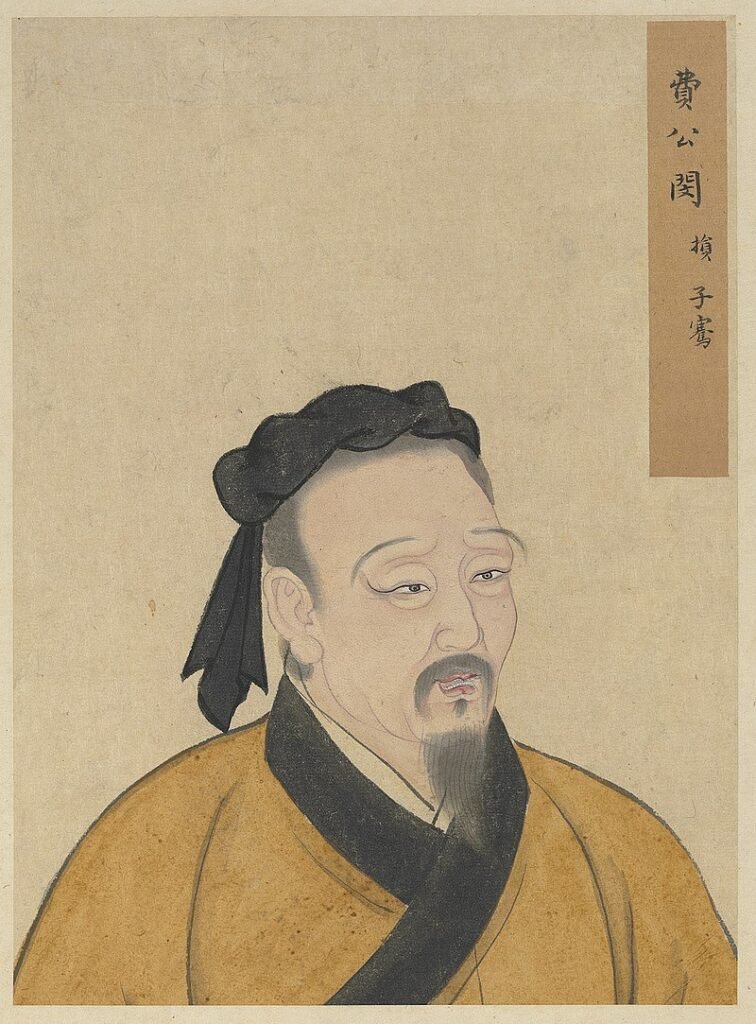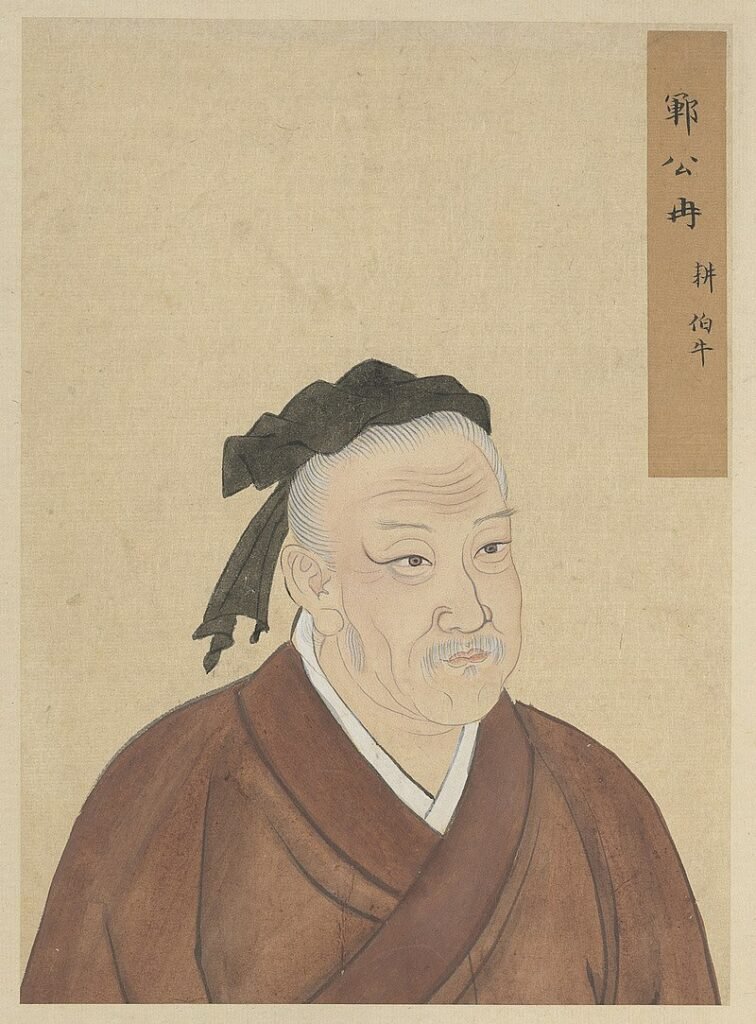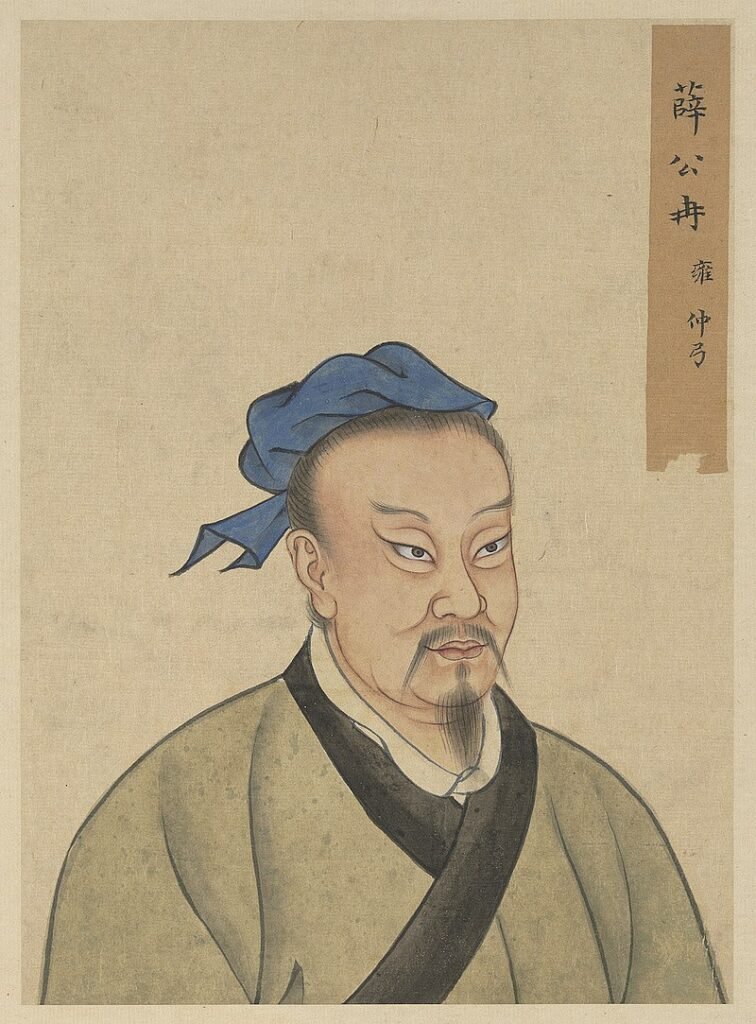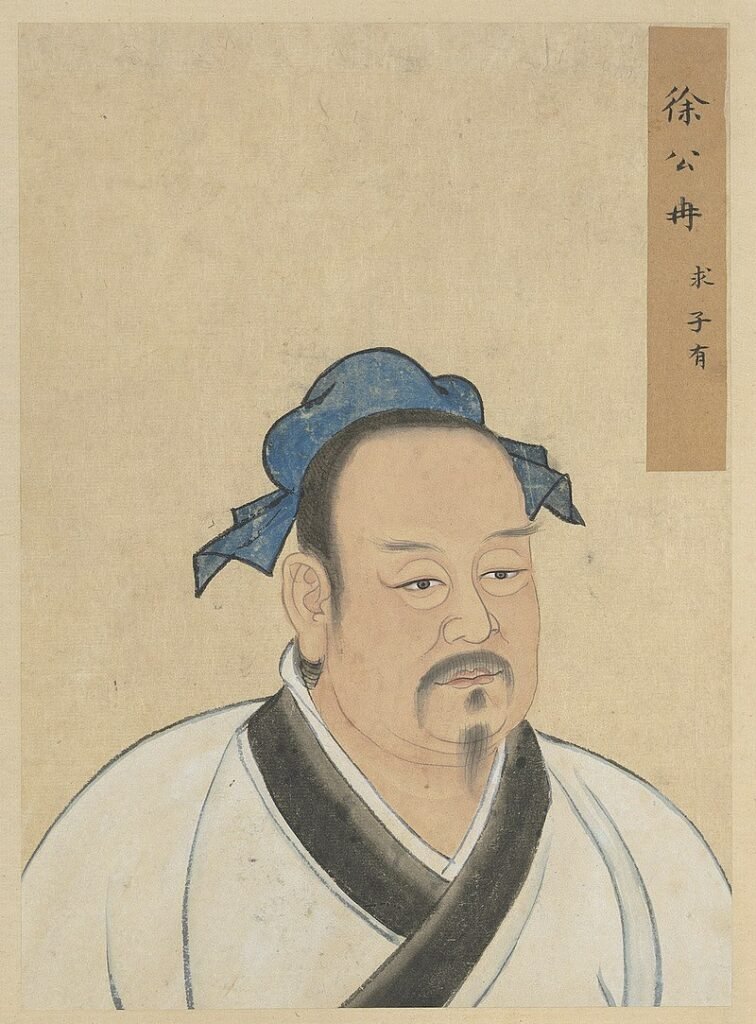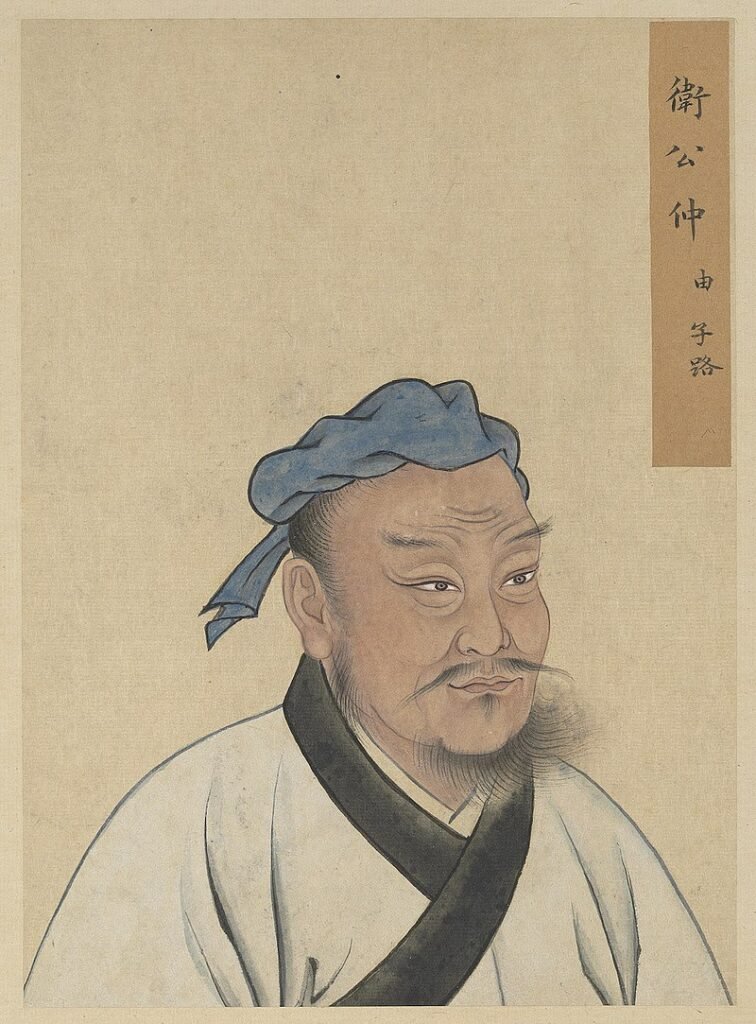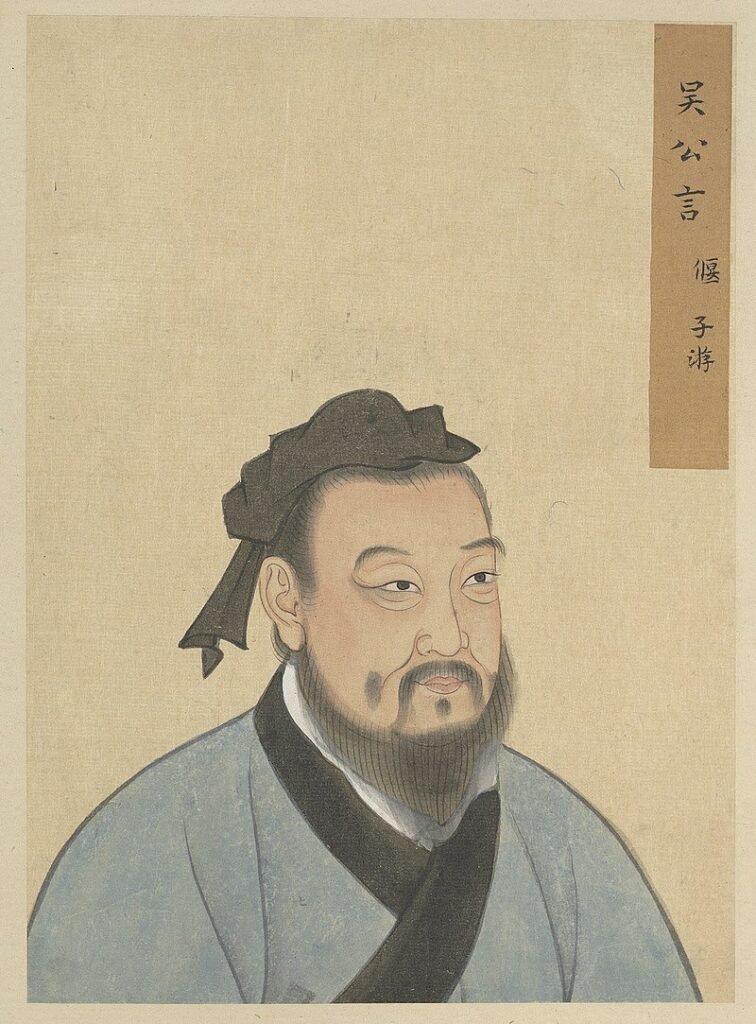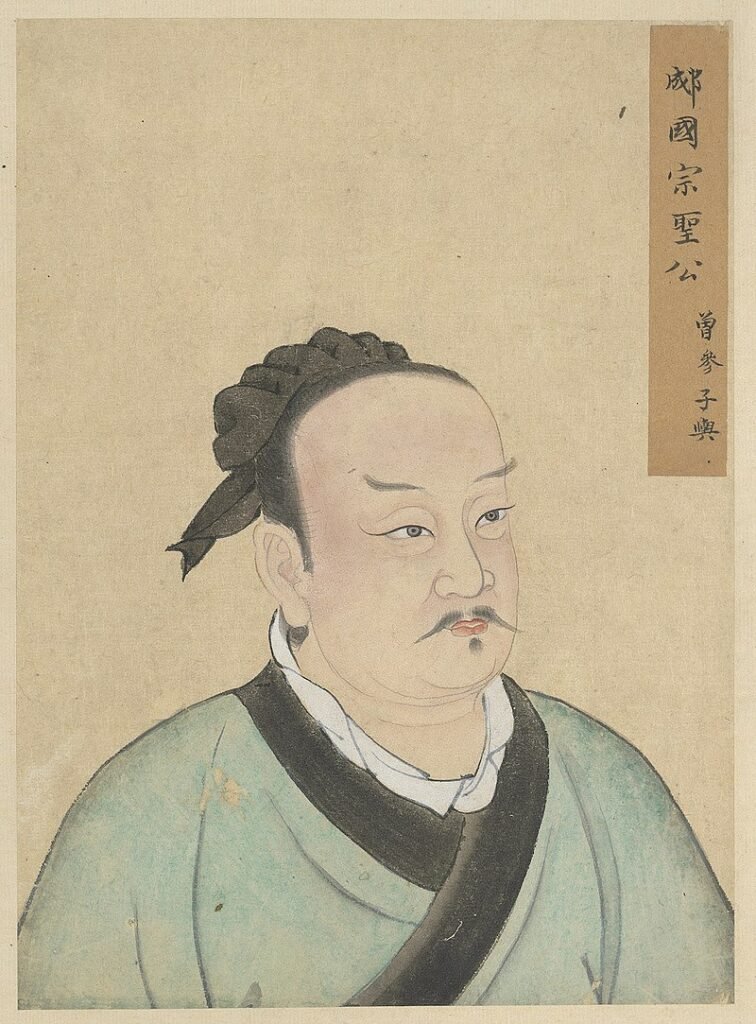The Ten Disciples of Confucius
The Ten Disciples of Confucius, refer to the ten students who studied under Confucius, namely Yan Zi, Ziqian, Boniu, Zhonggong, Ziyou, Zigong, Zilu, Ziwo, Ziyou, and Zixia. They were outstanding representatives of Confucianism and are worshipped in Confucianism as exemplary figures. In the Analects of Confucius, it is recorded that “Confucius said, of those who were with me in the country named Chen and Cai, there were none to be compared with the ten disciples. Yan Zi, Ziqian, Boniu, and Zhonggong were outstanding in their virtue. Zai wo and Zigong were good at communication. Ziyou and Zilu were outstanding in their handling of affairs. Zixia and Ziyou were proficient in literature.”
Virtue
- Yan Yuan (Yan Zi), also known as Yan Hui or Ziyuan, was posthumously conferred the title of Yan Gong. Emperor Xuanzong of Tang praised him, saying, “Among the myriad Confucian scholars, Yan Zi was extraordinary and was praised by others. He excelled in the four subjects of virtue, language, affairs, and literature. He was the first to practice whenever he discovered a good deed. It is a pity that his talents were unable to spread widely due to his early death.”
- Min Ziqian, also known as Min Sun or Ziqian, was posthumously conferred the title of Fei Hou. Yuan Qianyao praised, “Among Confucian scholars, Yan Zi was extraordinary, and Min Ziqian was highly virtuous. He was good at speaking in a courteous and respectful manner, and knew how to please his parents. He was versatile and principled. He was well-versed in both the classics and manners, and was a model of filial piety.”
- Ran Boniu, also known as Ran Geng or Boniu, was posthumously conferred the title of Yun Hou. Yao Chong praised him, saying, “He came from a distinguished family and learned under Confucius. He was considered the third-best disciple, after Yan Hui and Min Sun, in terms of moral conduct and always acted like a true gentleman. He treated everyone equally, and it is a pity that he passed away so young.”
- Zhonggong, also known as Ran Yong or Zhonggong, was posthumously conferred the title of Xue Hou. Zhang Jia Zhen praised, “He was capable of governing a state, and Confucius trusted him. He believed that the key to governance was in adhering to principles, rather than simply relying on punishment. He emphasized the importance of propriety and virtue, which were the teachings of Confucius.”
Language
- Zaiwo, also known as Zaiyu or Ziwo, was posthumously conferred the title of Qi Hou. Yuan Xingchong praised, “He was skilled in eloquence. He studied hard and achieved success. He admonished those who were lazy and unmotivated, and was criticized for being harsh. He emphasized the importance of loyalty and filial piety, and left behind a legacy that was admired by many. He was successful in governance and did not show any favoritism towards his own family.”
- Zigong, whose given name was Shanmu Ci, known as Zigong, was posthumously conferred the title of Li Hou. Wei Kang praised him, saying, ” He had a remarkable ability to gather additional information from a single statement. He devised strategies that contributed to the downfall of Wu dynasty, and his words and actions helped to revitalize Lu dynasty.”
Political Affairs
- Ran Qiu, also known as Ziyou, was posthumously honored with the title of Xu Hou. Song Jing praised his proficiency in the rites and music, which made him capable of instructing others. He was also skilled in governance and served as a competent minister. Despite his considerable talent, he remained diligent in his pursuit of improvement. Known as “the wise” due to his impartiality even in his old age, he was highly respected.
- Jilu, also known as Zilu, and with the given name Zhongyou, was posthumously granted the title of Wei Hou. Lu Yuqing lauded his character, stating that he was a remarkable and devoted individual who always honored his word.
Literature
- Ziyou, also known as Yanyan, was posthumously conferred the title of Wu Hou. Lu Congyuan spoke highly of him, describing him as a highly educated scholar whose words and music carried great political influence. He was decisive in his actions and spoke with great foresight, always upholding the highest standards of ritual propriety. Whether in public or private, he exuded an air of dignity that left a lasting impression on all who encountered him.
- Zixia, whose given name was Bushang, was posthumously conferred the title of Wei Hou. Pei Guan praised him as a dedicated scholar with a brilliant mind. He was proficient in both poetry and history, and his wisdom rivaled that of the sages. Zixia embodied virtues that could not be fully expressed through laws, and thus it was unjustifiable for people to blame fate for their misfortunes. Despite being misunderstood, Confucius persevered in his beliefs and remained separated from society for a prolonged period.





